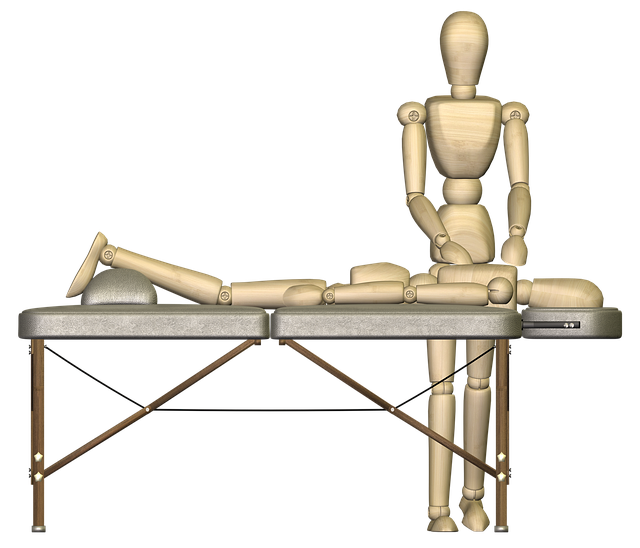Stress, driven by internal and external stimuli, impacts daily life and overall well-being. Cognitive Behavioral Therapy (CBT), a globally recognized psychotherapy approach, effectively manages stress by addressing negative thought patterns. Through techniques like cognitive restructuring, behavior activation, and exposure therapy, CBT promotes healthier coping strategies, emotional regulation, and problem-solving behaviors to reduce stress impact. Additionally, CBT offers relaxation techniques like deep breathing and mindfulness meditation, fostering resilience and emotional well-being in challenging situations. Building resilient thinking patterns through CBT enables individuals to navigate stressful circumstances with greater ease and confidence, making stress a manageable part of life.
Stress is a ubiquitous part of life, but managing it effectively can significantly enhance well-being. This article explores cognitive strategies, centered around Cognitive Behavioral Therapy (CBT) as a powerful tool for navigating stress. We’ll delve into understanding stress and its impact on the mind, introducing CBT as a proven approach. By identifying distorted thought patterns and challenging negative thoughts with evidence, reframing perspectives, and adopting relaxation techniques, individuals can build resilient thinking for long-term stress management, leveraging the benefits of CBT therapy.
Understanding Stress and Its Impact on the Mind

Stress is a complex response triggered by various internal and external factors, affecting our daily lives and overall well-being. It can manifest as physical, emotional, or mental tension, often stemming from challenging situations or demands that strain our resources. When we perceive a stressor, our mind and body initiate a cascade of reactions, releasing hormones like cortisol and adrenaline, which prepare us for action—a phenomenon known as the “fight or flight” response. While acute stress can enhance focus and performance, chronic stress, left unaddressed, can have detrimental effects on both mental and physical health.
Cognitive Behavioural Therapy (CBT) offers valuable insights into managing stress by focusing on the interplay between thoughts, feelings, and behaviours. This therapeutic approach helps individuals identify and challenge negative or distorted thinking patterns that contribute to stress. By modifying these cognitive processes, CBT empowers people to develop healthier coping strategies, regulate emotions more effectively, and engage in problem-solving behaviour, ultimately reducing the impact of stressful situations on their mental state.
Introduction to Cognitive Behavioral Therapy (CBT)

Cognitive Behavioral Therapy (CBT) is a widely recognized and effective form of psychotherapy that focuses on identifying and changing negative thought patterns and behaviors. This therapeutic approach emphasizes the connection between thoughts, feelings, and actions, aiming to help individuals manage stress and improve their overall well-being. CBT therapy encourages people to challenge and replace self-destructive or distorted thinking with more realistic and positive perspectives.
By breaking down complex issues into manageable components, CBT allows clients to understand and confront specific triggers that contribute to stress. Through various techniques, such as cognitive restructuring, behavior activation, and exposure therapy, individuals learn to recognize unhelpful thought processes and develop healthier coping strategies. This evidence-based method has proven successful in treating a range of mental health concerns, including anxiety and depression, making it a valuable tool for stress management.
Identifying Distorted Thought Patterns

Many people experience heightened stress levels due to distorted thought patterns, often unknowingly. Cognitive Behavioral Therapy (CBT) offers a powerful framework for identifying and challenging these unhelpful thoughts. By becoming aware of cognitive distortions, individuals can start to question their assumptions and beliefs, leading to a more balanced perspective.
Common cognitive distortions include all-or-nothing thinking, catastrophizing, and jumping to conclusions. For instance, someone might think, “I failed one task, so I’m completely incompetent,” instead of acknowledging the effort put in and learning from the experience. CBT encourages individuals to reframe these thoughts, encouraging a more realistic and positive self-talk that fosters resilience against stress.
Challenging Negative Thoughts with Evidence

Negative thoughts can be a significant contributor to stress, often distorting our perception and amplifying problems. Cognitive Behavioral Therapy (CBT) offers a powerful strategy to combat this: challenging negative thoughts with evidence. When stressed, we might find ourselves caught in a cycle of unhelpful beliefs and assumptions. CBT encourages individuals to question these thoughts by examining the evidence for and against them. For instance, if you believe “I can’t handle this task,” consider past successes or instances where you managed similar challenges successfully.
By engaging in this process, you can reframe negative thoughts into more realistic and positive ones. This approach helps to shift your mindset from a stressed perspective to a more balanced one, fostering resilience and a healthier mental state. It’s about taking control of your thought patterns and using logic to challenge the severity and accuracy of these negative beliefs, ultimately reducing stress levels.
Reframing and Rewordings for Positive Perspective

Reframing and rewordings are powerful cognitive strategies that can help individuals manage stress through a positive perspective, as supported by CBT therapy. By changing the way we interpret stressful situations, we can transform our emotional response to them. For instance, instead of viewing a challenging task as overwhelming, one can reframe it as an opportunity for growth and skill development. This simple shift in perspective can reduce anxiety and increase motivation.
Similarly, rewordings involve expressing negative thoughts in more constructive ways. By replacing self-critical statements with affirmations or neutral phrases, individuals can alleviate stress and boost resilience. For example, instead of saying “I always mess up,” one could reframe it as “I made a mistake, but I will learn from it.” This approach encourages a more balanced and realistic view of oneself, fostering emotional well-being in stressful situations.
Relaxation Techniques in CBT for Stress Reduction

Cognitive Behavioral Therapy (CBT) offers a range of relaxation techniques to help manage stress effectively. One such technique is deep breathing, which involves slow and controlled inhalation and exhalation. This simple practice can activate the body’s relaxation response, reducing heart rate and blood pressure, and promoting a sense of calm. CBT also incorporates progressive muscle relaxation, where individuals systematically tense and then release different muscle groups to alleviate physical tension and reduce anxiety.
Additionally, mindfulness meditation is a powerful tool in CBT, encouraging individuals to focus on the present moment without judgment. This practice helps to quiet the mind, reducing rumination and stress-related thoughts. By learning these techniques, people can better navigate stressful situations, fostering resilience and emotional well-being.
Building Resilient Thinking for Long-Term Stress Management

Building resilient thinking patterns is a key component of long-term stress management, and Cognitive Behavioral Therapy (CBT) offers powerful tools to achieve this. CBT encourages individuals to challenge and reframe negative or distorted thoughts that contribute to stress. By identifying unhelpful cognitive behaviors, people can learn to replace them with more balanced and realistic perspectives. This process helps build mental resilience, allowing individuals to cope more effectively with stressful situations over time.
Through CBT, individuals develop strategies to manage their emotions, such as mindfulness techniques and problem-solving skills. These tools enable people to remain calm under pressure, making stress a manageable part of life rather than a overwhelming force. By fostering resilient thinking, CBT empowers individuals to navigate challenging circumstances with greater ease and confidence.
